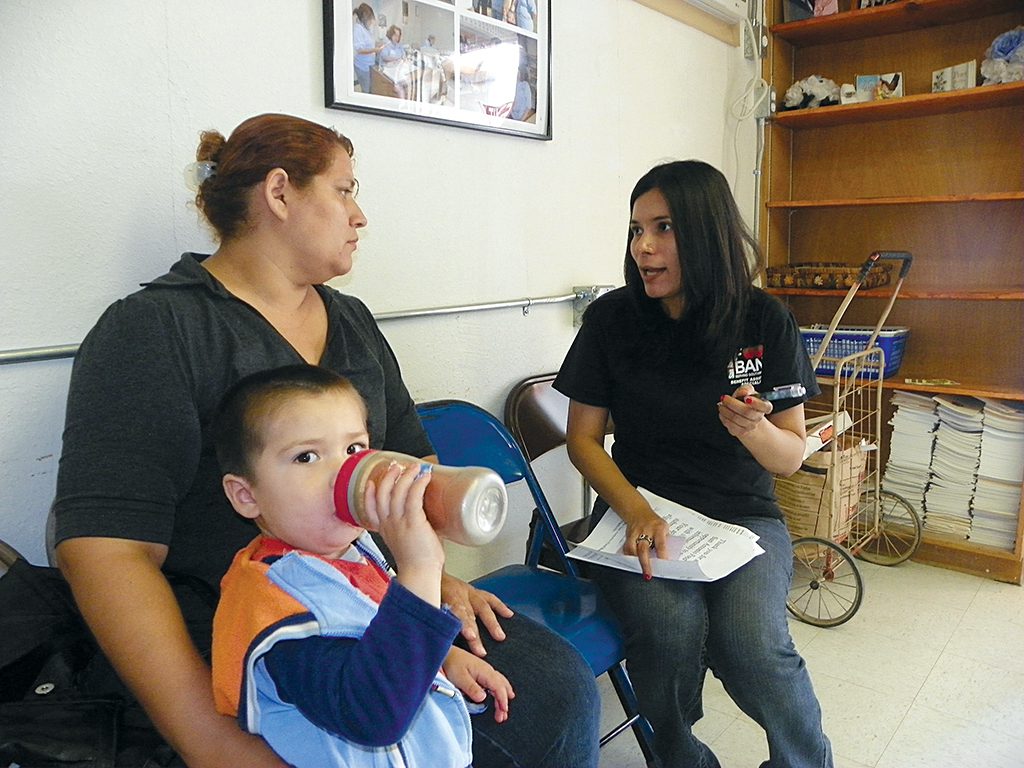By Cynthia Woodside, Bread for the World Institute
Bread members and supporters know that public policy change takes time. As people working to end something as large and complex as hunger, we make a virtue of necessities such as persistence and patience.
But progress sometimes comes sooner rather than later. News of a new grant program was released during the first week in January that will add significant knowledge to current research about the hunger-health connection. The grants will test whether addressing patients’ nutritional and social needs improves their health and lowers healthcare costs.
The announcement comes right on the heels of the release of Bread for the World Institute’s 2016 Hunger Report, The Nourishing Effect: Ending Hunger, Improving Health, Reducing Inequality. The report identifies the costly consequences of hunger and food insecurity for human health and for healthcare costs. It includes a study that, using very conservative figures, puts the cost of hunger for the U.S. healthcare system at $160 billion a year.
The new grant program also was launched soon after Bread for the World President Rev. David Beckmann highlighted the connection between hunger/food insecurity and health to officials in the Obama administration and urged the administration to address it more fully.
Food insecurity – defined as being without reliable access to a sufficient quantity of affordable, nutritious food to maintain a healthy, active lifestyle – is associated with higher rates of asthma, depression, cardiovascular disease, high blood pressure, diabetes, and other physical and mental health problems. One study found that food insecurity increases – by nearly 50 percent – the chances that a person will become a high-cost user of healthcare services within five years. And sadly, food insecurity in childhood is a predictor of chronic illness in adulthood.
Under the newly-announced grants, named the Accountable Health Communities Model, the Centers for Medicare and Medicaid Services (CMS) in the U.S. Department of Health and Human Services will award up to $157 million over five years to assess the most effective ways to bridge clinical care with social services. The grant awardees, or “bridge organizations,” will oversee the screening of Medicare and Medicaid beneficiaries for food insecurity, housing instability, utility needs, interpersonal violence, and transportation limitations, and then help them connect with and navigate the appropriate community-based services.
The grant program will seek to determine which model of bridging clinical care with social services is most effective in improving people’s health and reducing total healthcare costs, visits to emergency rooms, and readmissions to hospitals.
Eligible grant applicants include community-based organizations, healthcare provider practices, hospitals and health systems, institutions of higher education, local government entities, tribal organizations, and for-profit and not-for-profit local and national entities. Up to 44 grants will be awarded. To be awarded a grant, applicants must partner with at least one state Medicaid agency, one hospital, one provider of primary care services, one provider of behavioral health services, and one community service provider equipped to address the health-related social needs identified through the screenings.
Letters of intent to apply are due to CMS by February 8, 2016; applications are due no later than March 31, 2016. For additional information, see here.
Cynthia Woodside is a senior domestic policy analyst at Bread for the World Institute


